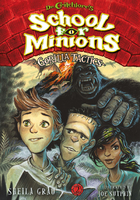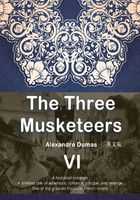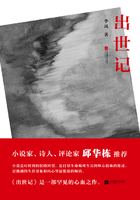Still the first day, All Fools' Day, here at the Center. Merle McRae and Floyd Bence—the superintendent and the chief ranger—appear at noon, bringing me five hundred gallons of water in a tank truck and a Park Service pickup truck outfitted with shortwave radio, fire tools, climbing rope, shovel, tow chain, first aid kit, stretcher, axe, etc.; the pickup and its equipment they will leave with me. I am to use it in patrolling the roads within the park, for assisting tourists in trouble, and for hauling firewood to and garbage from the campgrounds. Once a week I may drive the government vehicle to headquarters and Moab for fuel and supplies.
We fill the water tank buried in the slope above the housetrailer and have lunch together in the sunshine, sitting at a wooden picnic table near my doorway. Merle the super, the boss, is a slender, graceful man of about fifty years, with a fine, grave, expressive face toughened though not hardened by a life spent mostly out-of-doors. He was born and raised on a small ranch in New Mexico, went to the University of Virginia, and has made his living as a cattle rancher, dude rancher, CCC supervisor (during the Great Depression) and, since 1940, as a ranger in the National Park Service. He gives me an impression of tenderness, generosity and imperturbable good humor, but also complains, gently, of the hypothetical ulcer he expects to acquire from his years of struggle with administrative paper work. Married, he has three children; the oldest boy attends the University of Utah.
Floyd Bence is a tall powerful man around thirty years old, an archeologist by training, married, with two children. Because of his interests and academic background he should be working at some place like Mesa Verde or Chaco Canyon, poking about in dusty ruins, but is happy enough with his present situation so long as he is free to spend at least part of his time outside the office; the two things he dreads most, as a Park Service career man, are promotion to a responsible high-salaried administrative position, and a transfer back East to one of the cannonball parks like Appomattox or Gettysburg or Ticonderoga. Like myself he'd rather go hungry in the West than flourish and fatten in the Siberian East. A violent prejudice, doomed to disappointment. But at the moment, in the sparkling air and brilliant sunlight of the Utah desert, bad news seems far away.
"Well, Ranger Abbey," says Merle, "how do you like it out here in the middle of nowhere?"
I said it was okay by me.
They smile. "Kind of lonesome?" Floyd asks.
I said it was all right.
After lunch we get into the cab of the government pickup, all three of us, and tour the park. Arches National Monument remains at this time what the Park Service calls an undeveloped area, although to me it appears quite adequately developed. The roads, branching out, lead to within easy walking distance of most of the principal arches, none more than two miles beyond the end of a road. The roads are not paved, true, but are easily passable to any automobile except during or immediately after a rainstorm. The trails are well marked, easy to follow; you'd have to make an effort to get lost. There are three small camp grounds, each with tables, fireplaces, garbage cans and pit toilets. (Bring your own water.) We even supply the firewood, in the form of pinyon pine logs and old fence posts of cedar, which it will be my task to find and haul to the campgrounds.
We drive the dirt roads and walk out some of the trails. Everything is lovely and wild, with a virginal sweetness. The arches themselves, strange, impressive, grotesque, form but a small and inessential part of the general beauty of this country. When we think of rock we usually think of stones, broken rock, buried under soil and plant life, but here all is exposed and naked, dominated by the monolithic formations of sandstone which stand above the surface of the ground and extend for miles, sometimes level, sometimes tilted or warped by pressures from below, carved by erosion and weathering into an intricate maze of glens, grottoes, fissures, passageways, and deep narrow canyons.
At first look it all seems like a geologic chaos, but there is method at work here, method of a fanatic order and perseverance: each groove in the rock leads to a natural channel of some kind, every channel to a ditch and gulch and ravine, each larger waterway to a canyon bottom or broad wash leading in turn to the Colorado River and the sea.
As predicted, the snowfall has disappeared by this time and all watercourses in the park are dry except for the one spring-fed perennial stream known as Salt Creek, a glassy flow inches deep that trickles over shoals of quicksand and between mud flats covered with white crusts of alkali. Though it looks potable the water is too saline for human consumption; horses and cattle can drink it but not men. Or so I am informed by Merle and Floyd. I choose to test their belief by experiment. Squatting on the shore of the stream, I dip my cupped hands into the water and sample a little. Pretty bad, neither potable nor palatable. Perhaps, I suggest, a man could learn to drink this water by taking only a little each day, gradually increasing the dosage…?
"You try that," says Merle.
"Yeah," Floyd says, "give us a report at the end of the summer."
Late this afternoon we return to the housetrailer. Floyd lends me a park ranger shirt which he says he doesn't need anymore and which I am to wear in lieu of a uniform, so as to give me an official sort of aspect when meeting the tourists. Then there's this silver badge I'm supposed to pin to the shirt. The badge gives me the authority to arrest malefactors and evildoers, Floyd explains. Or anyone at all, for that matter.
I place both Floyd and Merle under arrest at once, urging them to stay and have supper with me. I've got a big pot of pinto beans simmering on the stove. But they won't stay, they have promises to keep and must leave, and soon they're driving off in the water-truck over the rocky road to the highway and Moab. Climbing the rise behind the housetrailer I watch them go, the truck visible for a mile or so before the road winds deeper into the complex of sand dunes, corraded monoliths and hogback ridges to the west.
Beyond the highway, about ten miles away, rise the talus slopes and vertical red walls of Dead Horse Mesa, a flat-topped uninhabited island in the sky which extends for thirty miles north and south between the convergent canyons of the Green and Colorado rivers. Public domain. Above the mesa the sun hangs behind streaks and streamers of wind-whipped clouds. More storms coming.
But for the time being, around my place at least, the air is untroubled, and I become aware for the first time today of the immense silence in which I am lost. Not a silence so much as a great stillness—for there are a few sounds: the creak of some bird in a juniper tree, an eddy of wind which passes and fades like a sigh, the ticking of the watch on my wrist—slight noises which break the sensation of absolute silence but at the same time exaggerate my sense of the surrounding, overwhelming peace. A suspension of time, a continuous present. If I look at the small device strapped to my wrist the numbers, even the sweeping second hand, seem meaningless, almost ridiculous. No travelers, no campers, no wanderers have come to this part of the desert today and for a few moments I feel and realize that I am very much alone.
There is nothing to do but return to the trailer, open a can of beer, eat my supper.
Afterwards I put on hat and coat and go outside again, sit on the table, and watch the sky and the desert dissolve slowly into mystery under the chemistry of twilight. We need a fire. I range around the trailer, pick up some dead sticks from under the junipers and build a little squaw fire, for company.
Dark clouds sailing overhead across the fields of the stars. Stars which are unusually bold and close, with an icy glitter in their light—glints of blue, emerald, gold. Out there, spread before me to the south, east, and north, the arches and cliffs and pinnacles and balanced rocks of sandstone (now entrusted to my care) have lost the rosy glow of sunset and become soft, intangible, in unnamed unnamable shades of violet, colors that seem to radiate from—not overlay—their surfaces.
A yellow planet floats on the west, brightest object in the sky. Venus. I listen closely for the call of an owl, a dove, a nighthawk, but can hear only the crackle of my fire, a breath of wind.
The fire. The odor of burning juniper is the sweetest fragrance on the face of the earth, in my honest judgment; I doubt if all the smoking censers of Dante's paradise could equal it. One breath of juniper smoke, like the perfume of sagebrush after rain, evokes in magical catalysis, like certain music, the space and light and clarity and piercing strangeness of the American West. Long may it burn.
The little fire wavers, flickers, begins to die. I break another branch of juniper over my knee and add the fragments to the heap of coals. A wisp of bluish smoke goes up and the wood, arid as the rock from which it came, blossoms out in fire.
Go thou my incense upward from this hearth
And ask the gods to pardon this clear flame.
I wait and watch, guarding the desert, the arches, the sand and barren rock, the isolated junipers and scattered clumps of sage surrounding me in stillness and simplicity under the starlight.
Again the fire begins to fail. Letting it die, I take my walking stick and go for a stroll down the road into the thickening darkness. I have a flashlight with me but will not use it unless I hear some sign of animal life worthy of investigation. The flashlight, or electrical torch as the English call it, is a useful instrument in certain situations but I can see the road well enough without it. Better, in fact.
There's another disadvantage to the use of the flashlight: like many other mechanical gadgets it tends to separate a man from the world around him. If I switch it on my eyes adapt to it and I can see only the small pool of light which it makes in front of me; I am isolated. Leaving the flashlight in my pocket where it belongs, I remain a part of the environment I walk through and my vision though limited has no sharp or definite boundary.
This peculiar limitation of the machine becomes doubly apparent when I return to the housetrailer. I've decided to write a letter (to myself) before going to bed, and rather than use a candle for light I'm going to crank up the old generator. The generator is a small four-cylinder gasoline engine mounted on a wooden block not far from the trailer. Much too close, I'd say. I open the switch, adjust the choke, engage the crank and heave it around. The engine sputters, gasps, catches fire, gains momentum, winds up into a roar, valves popping, rockers thumping, pistons hissing up and down inside their oiled jackets. Fine: power surges into the wiring, the light bulbs inside the trailer begin to glow, brighten, becoming incandescent. The lights are so bright I can't see a thing and have to shade my eyes as I stumble toward the open door of the trailer. Nor can I hear anything but the clatter of the generator. I am shut off from the natural world and sealed up, encapsulated, in a box of artificial light and tyrannical noise.
Once inside the trailer my senses adjust to the new situation and soon enough, writing the letter, I lose awareness of the lights and the whine of the motor. But I have cut myself off completely from the greater world which surrounds the man-made shell. The desert and the night are pushed back—I can no longer participate in them or observe; I have exchanged a great and unbounded world for a small, comparatively meager one. By choice, certainly; the exchange is temporarily convenient and can be reversed whenever I wish.
Finishing the letter I go outside and close the switch on the generator. The light bulbs dim and disappear, the furious gnashing of pistons whimpers to a halt. Standing by the inert and helpless engine, I hear its last vibrations die like ripples on a pool somewhere far out on the tranquil sea of desert, somewhere beyond Delicate Arch, beyond the Yellow Cat badlands, beyond the shadow line.
I wait. Now the night flows back, the mighty stillness embraces and includes me; I can see the stars again and the world of starlight. I am twenty miles or more from the nearest fellow human, but instead of loneliness I feel loveliness. Loveliness and a quiet exultation.













